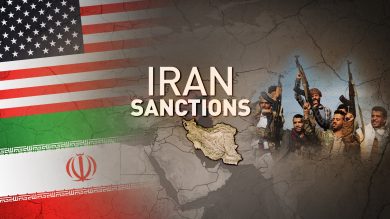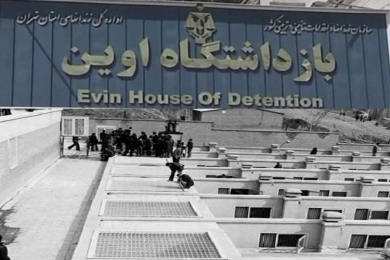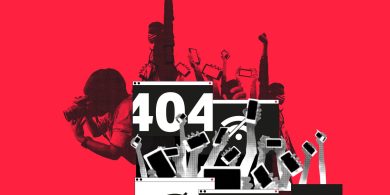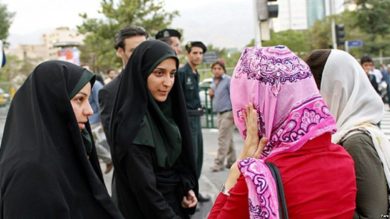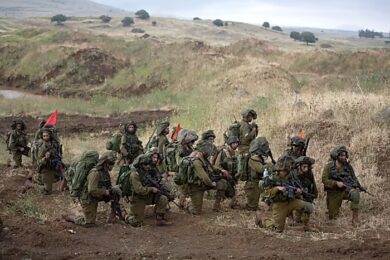Iran’s long history of resistance against oppression is shaped by the extraordinary courage of its activists—individuals who risk everything to fight for freedom, justice, and human rights. These voices of courage come from all walks of life: women defying oppressive gender laws, youth organizing protests, journalists exposing the truth, and minority groups resisting systemic discrimination. Despite facing imprisonment, torture, and even death, these activists persist, embodying the resilience and determination of a people yearning for change.
This article explores the stories of these brave individuals, shedding light on their struggles and the vital role global solidarity plays in supporting their fight.
The Activists’ Struggles: Fighting Against an Oppressive Regime
Iranian activists operate in one of the most repressive environments in the world. The Islamic Revolutionary Guard Corps (IRGC) and other state apparatuses relentlessly suppress dissent through surveillance, arrests, censorship, and violence. Yet, these courageous individuals continue to speak out and demand change, often at great personal cost.
1. Women Leading the Way
One of the most visible forms of resistance in Iran is led by women, who challenge the regime’s strict gender policies and fight for basic freedoms.
• The Mandatory Hijab Protests: Since the 2017 “White Wednesdays” movement, women have taken to the streets to protest compulsory hijab laws by removing their headscarves in public. These acts of defiance have become iconic symbols of resistance.
• Mahsa Amini’s Legacy: The 2022 death of 22-year-old Mahsa Amini in the custody of the morality police sparked nationwide protests under the banner of “Women, Life, Freedom.” Women across Iran have risked imprisonment to demand gender equality and an end to systemic oppression.
2. Youth on the Frontlines
Iran’s youth, frustrated by economic hardships, social restrictions, and political repression, have been at the forefront of protests and activism.
• Protests Over Economic Inequality: Young people disproportionately bear the burden of Iran’s economic challenges, including high unemployment and inflation. Their protests often begin with economic grievances but quickly expand into broader demands for reform.
• Digital Activism: Despite government censorship, tech-savvy youth use social media to organize protests, share evidence of human rights abuses, and amplify their voices globally.
3. Journalists and Truth-Tellers
Journalists in Iran face immense risks for reporting the truth about government abuses, corruption, and public dissent.
• Exposing the Regime’s Crimes: Independent journalists document and share stories of atrocities, such as the violent suppression of protests, often at great personal risk.
• Censorship and Persecution: Many journalists have been imprisoned or forced into exile. Despite these challenges, they continue to serve as a vital source of information for the world.
4. Minority Groups Demanding Equality
Ethnic and religious minorities, including Kurds, Balochs, and Bahá’ís, face systemic discrimination and repression in Iran. Activists from these communities fight not only for their own rights but also for broader social justice.
• Kurds and Balochs: These groups often lead protests in their regions, which face even harsher crackdowns due to their perceived threat to the regime.
• Bahá’í Persecution: Bahá’ís, a religious minority, are systematically denied basic rights, including access to education and employment. Activists within the community fight for religious freedom and equality.
Stories of Courage: Individual Activists on the Frontlines
Behind every movement is a human story. Here are a few examples of activists whose courage has inspired others:
1. Narges Mohammadi
A renowned human rights activist, Narges Mohammadi has dedicated her life to advocating for women’s rights, prisoners of conscience, and the abolition of the death penalty.
Despite multiple arrests and years in prison, Mohammadi continues to inspire global support for Iran’s human rights movement.
2. Nasrin Sotoudeh
Nasrin Sotoudeh, a prominent lawyer and women’s rights advocate, has represented numerous activists and political prisoners. Her fearless defense of those persecuted by the regime has made her a target, resulting in harsh prison sentences. Yet, she remains an enduring symbol of resilience.
3. Sepideh Gholian
A labor rights activist, Sepideh Gholian has been arrested multiple times for documenting and participating in workers’ protests. Despite torture and imprisonment, she continues to advocate for workers and marginalized communities.
4. Kurdish Activists
Kurdish activists, such as those leading protests in Mahabad and Sanandaj, highlight the intersection of ethnic and political oppression. Their courage in organizing resistance against the regime often results in brutal crackdowns, including executions.
Challenges Facing Iranian Activists
The challenges faced by Iranian activists are immense, and the regime’s repressive tactics aim to stifle their efforts at every turn.
1. Brutal Repression
The IRGC and security forces employ violence, mass arrests, and even executions to suppress dissent. Protesters and activists are often targeted with excessive force during demonstrations, leading to widespread fear.
2. Information Blackouts
The regime uses internet shutdowns to disrupt communication and obscure its human rights abuses. This limits activists’ ability to organize and connect with global allies.
3. Psychological and Physical Torture
Many activists who are detained face torture and inhumane treatment in prison. This not only punishes individuals but also serves as a warning to others.
4. Lack of International Focus
While global solidarity has increased in recent years, many activists feel abandoned during quieter periods when the world’s attention shifts elsewhere.
The Role of Global Solidarity
Iranian activists cannot fight this battle alone. Global solidarity is essential to amplifying their voices and pressuring the regime to enact change.
1. Amplifying Activist Voices
• Media Coverage: International media must prioritize stories of Iranian activists to keep global attention on their struggle.
• Social Media Advocacy: Campaigns such as #MahsaAmini and #WomenLifeFreedom have been instrumental in mobilizing global support.
2. Pressuring the Regime
• Targeted Sanctions: Sanctions on officials and entities responsible for human rights abuses can weaken the regime’s ability to suppress dissent.
• Diplomatic Efforts: Governments and international organizations must demand accountability for human rights violations in Iran.
3. Providing Resources
• Digital Tools: Providing activists with VPNs and encrypted communication tools can help them bypass censorship.
• Financial Support: Supporting grassroots organizations and human rights groups can empower activists on the ground.
4. Safe Havens
• Asylum and Refugee Programs: Activists fleeing persecution need safe havens where they can continue their work without fear of reprisal.
Conclusion
The voices of Iranian activists are a testament to the courage and resilience of a people determined to fight for freedom and justice. Despite the immense challenges they face, these individuals continue to inspire hope for a better future. The global community has a moral responsibility to stand in solidarity with them, amplifying their voices, pressuring the regime, and providing the resources needed to sustain their struggle. By supporting Iranian activists, the world can contribute to a movement that seeks not only to transform Iran but also to uphold the universal values of human rights and dignity.
Join Our Newsletter!
Stay informed with the latest updates, news, and ways to take action in the fight for justice and global security. Sign up now to get updates delivered straight to your inbox!

